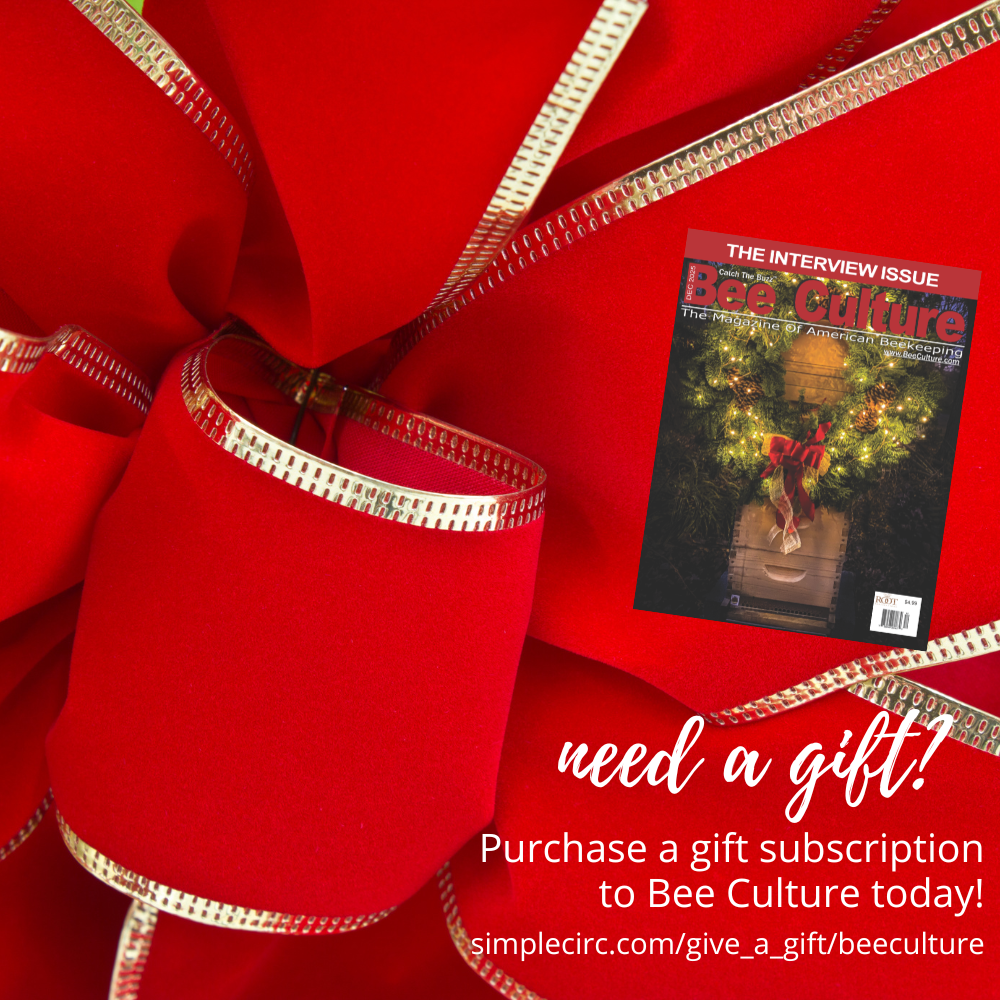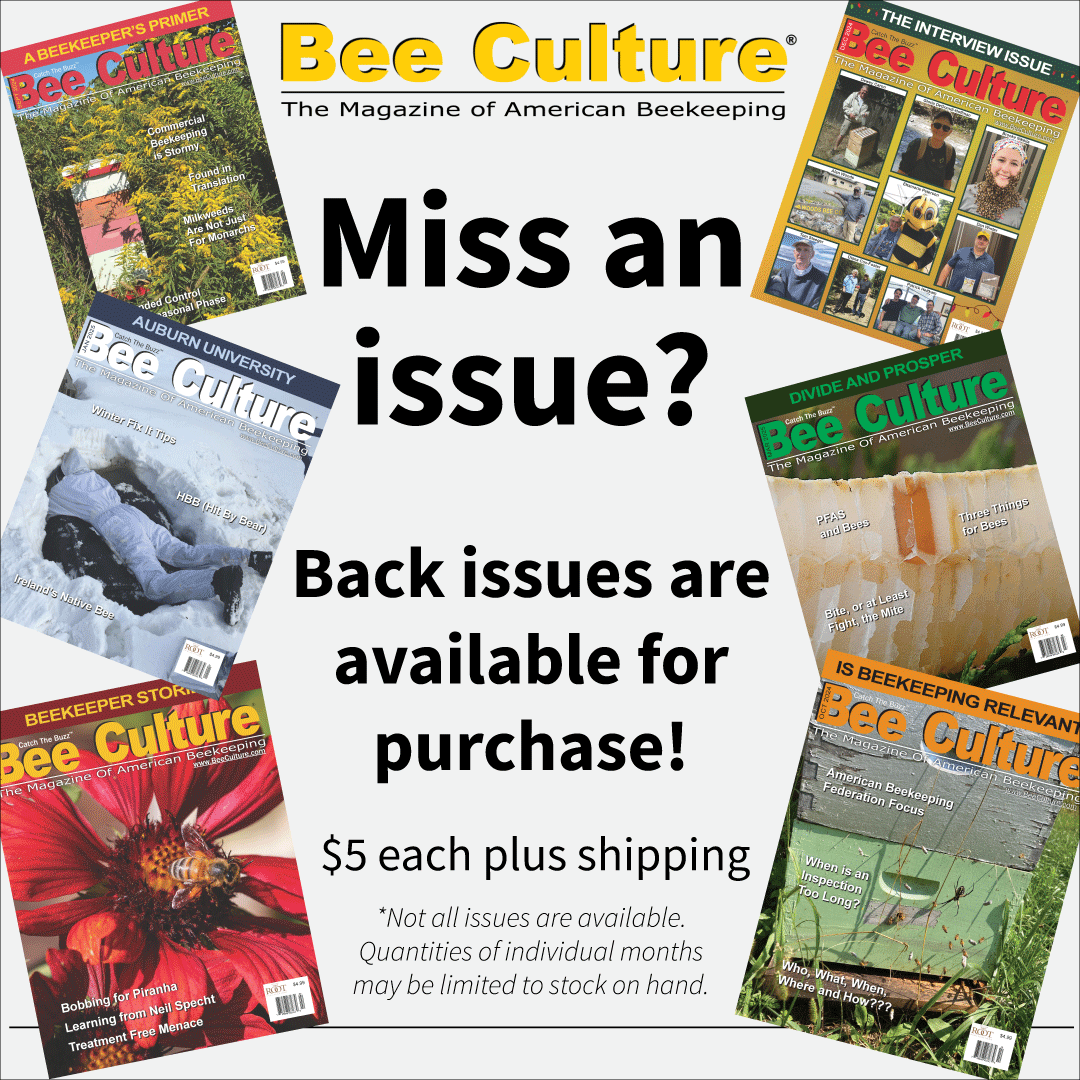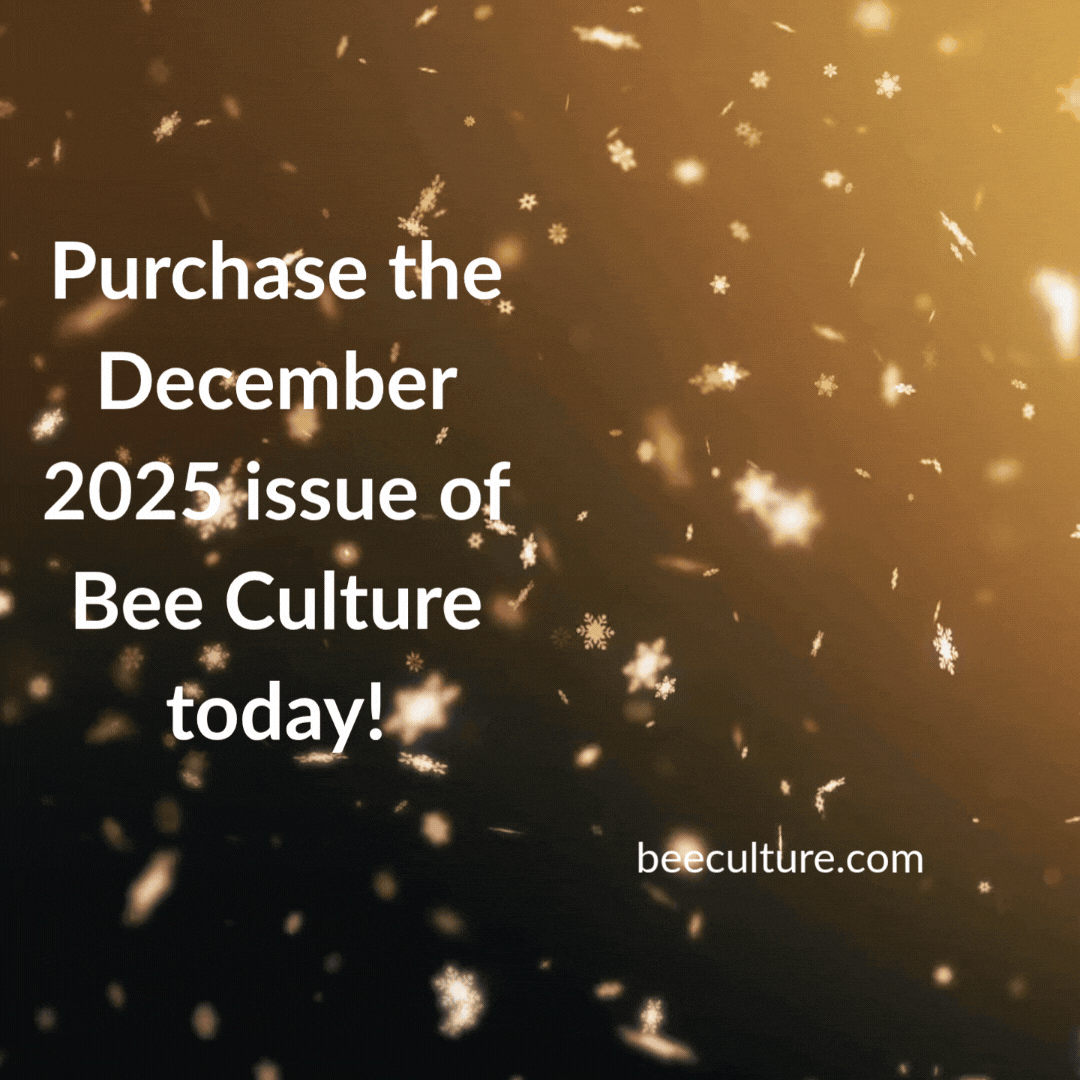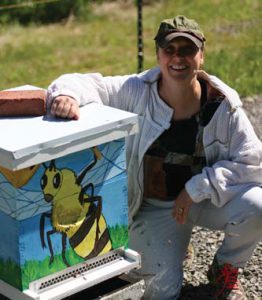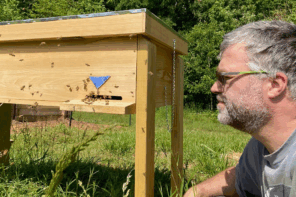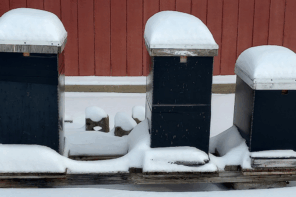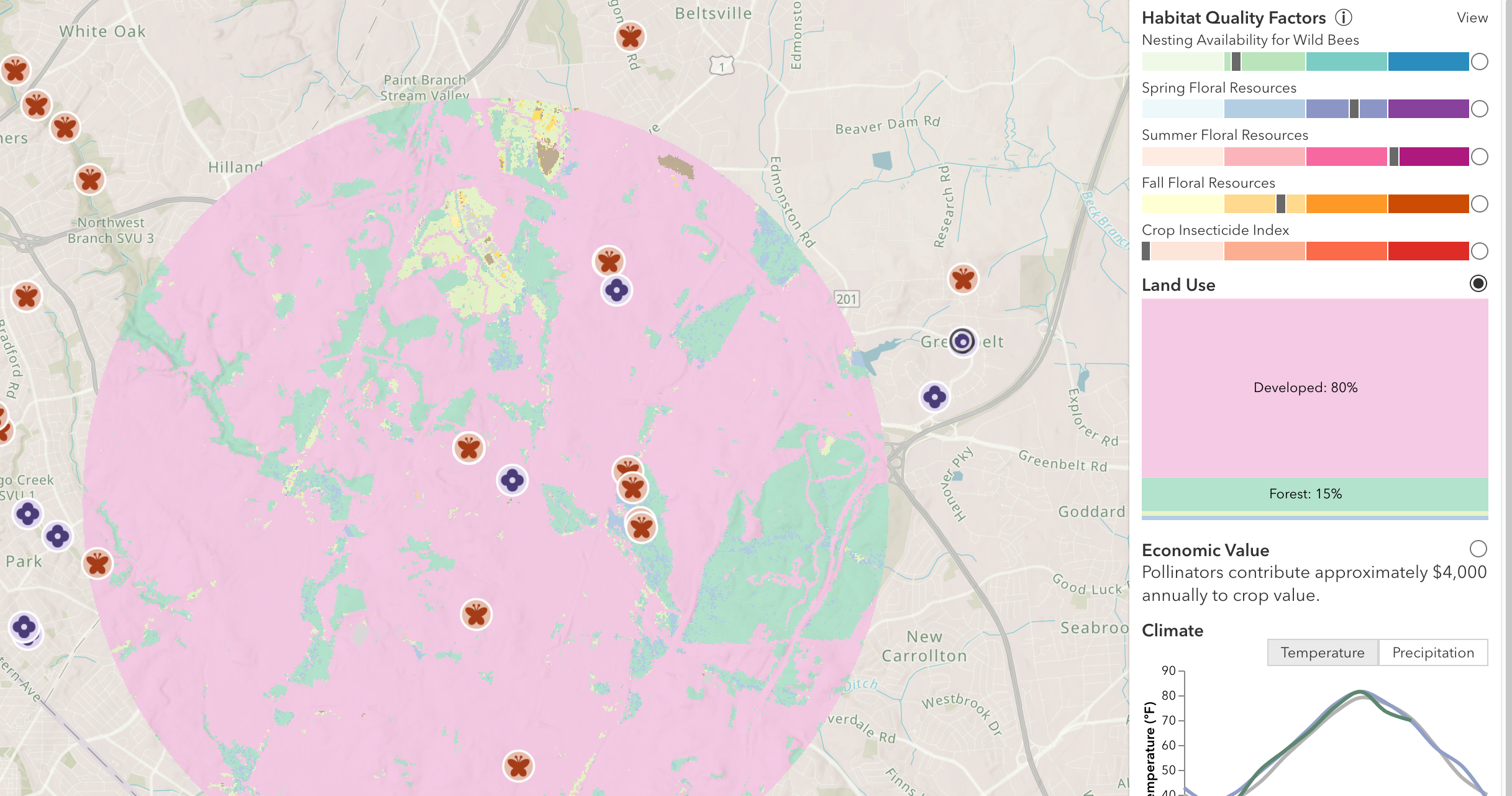Immunity, Vaccines & Honey Bees: Part 2
Dr. Tracy Farone
Immunity in Honey Bees
If you missed last month’s part one of this series, I am about to give you some homework! Please go back and read part 1 in the previous BC issue, it will really help with your understanding of this article. Much of what I discussed previously applies to vertebrates, and perhaps has best been understood in mammals. Because honey bees do not produce antibodies, we used to think complex individual immunity, particularly humoral immunity did not exist in honey bees, but the more research we do, the more complex we find honey bee immunity to be. We now know that individual immunity exists in honey bees and includes a mix of complex innate, humoral, and cellular responses.
Social immunity is also a characteristic of the honey bee colony. Hygienic behavior, propolis use, and thermal elevations are examples of social immunity in action. We know that individual sick bees will fly off and die in hopes of not infecting the rest of their siblings. Nestmates share and transfer just about everything, so feeding worker bees a medicine easily distributes it throughout the colony.
Interview with Dr. Annette Kleiser
I had the opportunity to listen to a lecture on the current honey bee vaccine research being done by DALAN Animal Health, and later had the privilege to sit down (over ZOOM) with the lecturer, Dr. Annette Kleiser, PhD, CEO, and founder of DALAN AH. Dr. Kleiser’s team consists of a mix of PhD scientists, vaccine experts, entrepreneurs, veterinarians and beekeepers. During the interview, Dr. Kleiser was able to share some information with me about the honey bee vaccination research they are doing, although some of the information is still privileged and unable to be shared at this time.
I asked Dr. Kleiser what she and her colleagues would like beekeepers to know.
She followed by saying, “Know that the vaccine/s we are developing are not “chemicals”, they are non-GMO, and unlike antibiotics would have no withdrawal time. We are using nature to help (bees) themselves through a vaccine. We are using a killed pathogen fed to the animal. This will be a sustainable action; we must get away from antibiotics. DALAN’s first vaccine is being developed for American Foulbrood. While antibiotics in some instances can be effective to keep the bacteria burden in hives at bay, prophylactic use of antibiotics is only permitted in high-risk hives surrounding an outbreak of AFB largely due to the concern of antibiotic resistance and residue of antibiotics in honey.”
Dr. Kleiser also stressed, “Bees are animals that need the same level of medical care we give our other animals. (Honey) bee health seems to be a blind spot to the traditional animal health companies.”
Dr. Kleiser has reason to be proud of the ground breaking progress they are making for the honey bee industry. She continued, “On an academic level, vaccination in honey bees has been described before using injection of pathogens into the queen for example and against diseases such as Chalkbrood, using oral application of the vaccine, though DALAN is the first Company to start the regulatory approval process for marketing a new product against AFB, which is a tricky infectious agent to work with in the field, and acceptable clinical trial protocols also had to be developed from the ground up.”
“There are rigorous testing and regulatory steps that are required to test the product.” she explained, “Clinical trials are now being defined for bee health and the industry. (We’re) pursuing USDA-CVB conditional licensure, and there are issued and pending patents. We are currently conducting field pilot trials to prepare for large scale field studies to test the approach in real-world settings over the next few years once a conditional license is granted.”
A specific vaccine for AFB is the first product being investigated but Dr. Kleiser says the technology can be applied to develop vaccines for EFB, an AFB/EFB combo vaccine, Chalkbrood, plus any infectious diseases, like honey bee viruses and other fungal diseases, as well.
Dr. Kleiser also pointed out that “Increased immunity will likely help bees deal with other stressors.” As we know, healthier colonies have a better chance at dealing with all types of environmental stressors.
The Vaccination Process in Honey Bees
The vaccine/s under development will be an oral vaccine, fed directly to workers and then ultimately to the queen through royal jelly. Over years of research, DALAN’s researchers together with other academic researchers have uncovered the importance of trans-generational immune priming in honey bees. This is a process, often seen in insects, where the mother can pass immunity to previously encountered pathogens to her offspring. The process involves innate and acquired immune activity in the queen that results in something analogous to passive transfer in mammals. Through various immunological techniques, researchers are able to tag, often using a fluorescent signature, the vaccine (killed pathogen particles) to see how they move through the queens’ bodies to their offspring.
Dr. Kleiser further explained, “Our researchers together with other academic groups followed the passage of killed pathogen particles (the vaccine) in the queen from the royal jelly to the gut, through the hemocoel, to fat body to vitellogenin, to the ovary to the egg and it ultimately triggers immunity in the larvae.” Through this research, the researchers have revealed the important role of the protein vitellogenin in bees, the ability to bind to pathogen particles and pass these immune elicitors on to the egg and larvae.
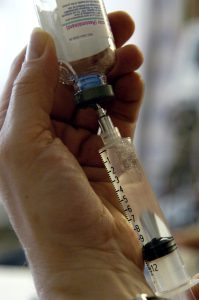
To test the vaccine effectiveness in transferring immunity, experimental colonies and procedures, control colonies and sham procedures were set up. Per Dr. Kleiser, “We fed or not fed queens with the vaccine, allowed her to establish the new colonies and then took one-day-old larvae into the lab, (and we) challenged the larvae by blasting them with thousands of highly lethal AFB spores and measured +/- survival.”
Results of these studies showed that larvae from vaccinated colonies showed a significantly higher survival rate than larvae from unvaccinated colonies. Over the years, DALAN researchers with their academic colleagues also conducted comparison tests for negative effects on colony strength, honey quality, honey quantity, and queen fitness. So far, these studies revealed no negative effects associated with vaccine use which supports safe vaccine use within a hive.
What’s on the Horizon?
There are a few questions I am sure beekeepers will be asking about AFB and other honey bee vaccines. When can we expect them on the market? How much will they cost? What about practicality of use?
At this time, the DALAN research team cannot give a time the vaccine/s will be available or cost. Remember safe and effective vaccine work takes years and lots of approvals. As far as practicality, according to Dr. Kleiser, her team believes the vaccine will likely last a season and will need to be applied each beekeeping season.
If the benefits of these vaccines are to increase honey bee immune resistance to AFB, EFB, honey bee viruses and fungal diseases, and they eliminate antibiotic over use/misuse/resistance, it will be priceless to our honey bees, the beekeeping industry, and public health in general.
References and additional reading
Freitak, Dalial, Schmidtberg, Henrike, Franziska, Dickel, et.al. The maternal transfer of bacteria can mediate trans-generational immune priming in insects. Virulence. 5:4.547-554. May 15, 2014.
Freitak, Dalial. Vaccination of Honey Bees Against American Foulbrood. Bee Culture. Feb 2021. pp. 76-7.
Goblirsch, Michael and Freitak, Dalial.. Proceedings of the 2020 American Bee Research Conference
2.20. Testing a Queen Vaccine against Chalkbrood Infection (Poster).
Harwood, Gyan, Amdam, Gro V., Freitak, Daliel. The role of Vitellogenin in the transfer of immune elicitors from gut to hypopharyngeal glands in honey bees (Apis mellifera). Journal of Insect Physiology. 112(2019) 90-100. doi:10.1016/j.jinsphys.2018.12.006.
Harwood, Gyan, Heli Salmela, Freitak, Dalial and Amdam, Gro V. Social immunity in honey bees: royal jelly as a vehicle in transferring bacterial pathogen fragments between nestmates. Journal of Experimental Biology. (2021) 224.jeb231076. doi: 1242/jeb.231076.
Heli Salmela, Amdam, Gro V., Freitak, Dalial (2015). Transfer of Immunity from Mother to Offspring is Mediated via Egg-Yolk Protein Vitellogenin. PLoS Pathog 11(7):e1005015. doi:10.1371/journal.ppat.1005015.
Hernández López, Javier, Schuehly, Wolfgang, Crailsheim, Karl, and Riessberger-Gallé,,Ulrike . Honeybee transgeneraltions immune priming using injection of Paenibacillus bacteria.
https://www.ncbi.nlm.nih.gov/pmc/articles/PMC4024302/



